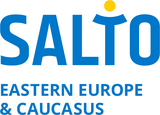Questions and answers related to Russian invasion of Ukraine
Please note that our information can be incomplete, so for any official answer, please contact relevant National Agency or the European Commission. Please also note that the questions and answers are dated, as the situation is dynamic and what is correct answer today, might not be tomorrow.
Is Russia (and Belarus) eligible partner country in the both European Programmes? (13.05.2022)
The European Commission announced in the 5th package if sanctions of 8th April, that "the Commission will terminate participation in all ongoing grant agreements to Russian public bodies or related entities, and suspend all related payments...under Erasmus+. No new contracts or agreements with Russian public bodies or related entities will be concluded under these programmes".
Anyway, this does not relate to the youth sector as explained in the European Commission's questions & answers page: " Russian individuals, youth and civil society organisations can continue to participate in Erasmus+ and the European Solidarity Corps youth actions."
So practically there is no any changes in Erasmus+ Youth and European Solidarity Corps related to participation of Russian (or Belarusian) young people in the projects. In the beginning of May the European Commission clarified, that participation of Russian organisations providing "educational activities" (as defined in the Russian Federal law No 1057895-7) in Erasmus+ KA2: strategic partnerships / partnerships for cooperation is not possible anymore. This means such Russian partners in the project should be removed (by annexing the grant contract with the NA) and such Russian partners are not eligible in KA2 in upcoming calls for projects.
Nevertheless, please note that a number of EU countries introduced their own restrictions for cooperation with Russian (and sometimes also Belarusian) organisations and individuals, so in some cases youth projects with the two mentioned countries can break national regulations.
What are the Erasmus+ Youth and European Solidarity Corps measures to support Ukraine? (20.04.2022)
The European Commission has proposed the National Agencies (E+/NA/DIR/2022/021 and E+/NA/DIR/2022/023) some flexibilities to current programmes’ implementation to better response the war in Ukraine, among them:
- organisations currently implementing youth projects within any of the two European youth programmes can adjust their activities to respond the needs of people affected by the war;
- the organisations can voluntarily decide which of their unrealised projects elements will be substituted with actions in support of Ukraine and accordingly the organisations can move relevant parts of their project's budget into such actions;
- depending on a project themes and objectives, such adjustments can be done within the flexibility embedded in the rules of the programmes;
- if the adjustment requires modification of the scope and objectives of a project, it should be consulted with the responsible National Agency and an annex to the grant agreement signed;
- within the European Solidarity Corps as well as in KA1 youth activities, the European Commission allows that in projects with Ukrainians involved, the role of sending organisation is performed by another project partner (i.e. the coordinating organisation). Anyway, please note that the community of Ukrainian organisations as well as a number of other Ukrainian NGOs is actively working and ready to support Ukrainians for their mobility projects.
- CIGNA has established a special phone line 24/7 for the volunteers and their family members on the plan impacted by the Russian invasion of Ukraine. This line can be used when being confronted with trauma, feelings of anxiety or distress.
- Additionally, Ukrainian youth can take part in international volunteering projects more than once, only the total duration can not be over 14 months.
Can projects planned to be held in Ukraine relocated and/or postponed? (30.03.2022)
Such questions should be consulted directly with the responsible National Agency. In principle the NAs have some flexibility, especially when the beneficiaries face force-majeure situations. Nevertheless, this flexibility is limited, so the best is to consult with the responsible National Agency.
What is the reaction of SALTO EECA to the Russian invasion of Ukraine? (28.03.2022)
In practical terms, upon request from the Polish Ministry of Education and Science that supervises the work of the Foundation for the Development of the Education System that SALTO EECA is part of, all our cooperation with partners in Russia was suspended (including the Info Centre and Europe Goes Local partners). We are also not able to support youth workers and trainers from Russia to the TCA/NET activities of the National Agencies and SALTO network. We are actively involved in support of Ukraine.
